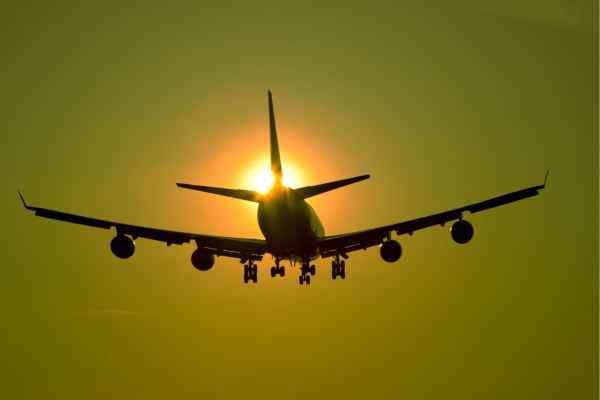Greener skies on the horizon
Sustainable travel has inched a step closer thanks to a $14 million funding boost.

A new facility could soon be turning farm waste into jet fuel to cut down on aviation emissions and give birth to a brand new industry.
Australian startup Jet Zero is embarking on a $36.8 million study to see if it's feasible to turn agricultural leftovers into lower-carbon liquid fuel in a pioneering $600 million plant to be located in Townsville, Queensland.
Australia's domestic aviation industry is responsible for around 2% of the nation's greenhouse gas emissions and is considered a tricky sector to clean up as most emissions come from long-haul flights. But there's hope on the horizon, with more sustainable fuels set to play a key role in helping the sector achieve lower emissions.
A $9 million grant from the Australian Renewable Energy Agency (ARENA) and $5 million from Queensland’s New Industry Development Strategy fund will help fund the feasibility study - the largest government support for a sustainable aviation fuel project in Australia to date.
"The funding will help achieve Australia’s transport sector decarbonisation goals, promote fuel security, and create regional jobs"
If all goes well, the new facility development, dubbed Project Ulysses, will turn bioethanol from agricultural byproducts into about 100 million litres of fuel each year - enough to power both Cairns and Townsville airports.
"The funding will help achieve Australia’s transport sector decarbonisation goals, promote fuel security, and create regional jobs," says Jet Zero CEO Ed Mason.
Some big collaborators are on board too, with the technology to be supplied by LanzaJet, and with financial support from Qantas, Airbus, and Japanese petrol company Idemitsu Kosan.
The use of more sustainable aviation fuels like the one produced by Jet Zero could lower Australia's carbon emissions by up to 70%, ARENA says, potentially preventing 225,000 metric tons of CO2 from reaching the atmosphere every year.
Greener pastures
But it's not just about cutting emissions. Its developers say t could be the start of a new industry in Australia, adding a potential $10 billion to the economy and creating more than 26,000 jobs by 2030, especially in regional areas.
ARENA CEO Darren Miller is bullish about the potential of the emerging sector. "With abundant feedstocks and vast renewable energy resources, Australia is well placed to produce the sustainable aviation fuels we need, right here at home," he says.
"We'll be taking an active role in making sure the lessons from Jet Zero Australia's study are shared with the industry at large, helping build a path to large-scale production in Australia."
The study is expected to be completed in 2025 and if all goes well, a commercial-scale facility could be operational by 2027.
Sustainable Aviation Fuel (SAF) is a ‘plug in’ fuel which works with existing aircraft and aviation infrastructure. SAF uses a diversified range of carbon sequestration crops and agricultural byproduct, and has seven times the energy density of state-of-the-art batteries, and four times as much as liquid hydrogen. Jet Zero Australia works with farmers and rural communities to repurpose agricultural byproduct and energy crops. The startup uses Alcohol to-jet (ATJ) processes to convert ethanol to Synthetic Paraffinic Kerosene (SPK) through a four stage, continuous catalytic process - the first of its kind in Australia.





